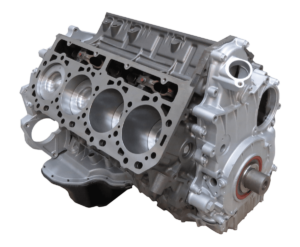It’s official, winter is here and that means our diesel trucks are out there in the cold. It’s important to start your diesel truck in the cold properly to avoid any damage. Cold temperatures can cause issues with engine oil, diesel fuel, ignition, and battery power.
Why are Diesel Engines Hard to Start in the Winter?
Diesel engines are typically more difficult to start in the winter than gas powered engines. This is because they require high temperatures created by compression to ignite the diesel fuel. Below -15°C, it’s five times more difficult to start a diesel engine than it is at 25°C. Along with the actual temperatures needed for ignition, diesel fuel is also more difficult to ignite at cold temperatures because it has gelling properties After about -9°C, diesel fuel can start to gel. This can cause a variety of issues from forming wax crystals to plugging the fuel filter.
8 Tips to Starting a Diesel Truck in the Winter
One of the most important tips to getting your diesel started safely in the winter is to prepare and know what to do when temperatures drop.
1. Use a block heater
Block heaters help diesel engines start on cold days by heating the internal combustion chamber. The block heater heats the coolant to circulate through the block and engine, keeping it warmer and making it easier to start.
2. Use a winter fuel
There are different grades of diesel fuel – Diesel #1D and Diesel #2D. Most people use Diesel #2D throughout the year as #1D is thinner and more volatile; however, blending the two can help ensure that the diesel fuel doesn’t gel as easily.
3. Use Winter Fuel Additives
Winter fuel additives are an important addition when temperatures drop significantly. A winter diesel fuel supplement can prevent fuel gelling, boost cetane for faster cold starts, and keep injectors clean. However, if you are using a mixed, winter fuel, be careful with fuel additives and don’t double up on winterizing your fuel.
4. Switch to a lighter weight engine
You can’t use the same engine oil in the summer and winter as thicker oils will not lubricate the engine as adequately when it gets cold. Be sure to check the recommended engine oil ratings of your diesel model to ensure that the winter engine oil you use isn’t too light for when the engine warms up.
5. Change your fuel filter
If you are worried your diesel fuel has gelled, it’s time to change out the fuel filter. Gelled diesel fuel can seriously clog your filter and cause a lot of damage to your engine. Replacing a fuel filter is far less expensive than replacing an engine!
6. Allow for adequate warm-up time
When it comes to diesel engines, it’s a good idea to let your truck warm up for a minimum of 5 minutes before driving. The colder it is, the longer you should let it warm up. By allowing your diesel truck to idle you can warm up the oil temperature enough for adequate lubrication of all the hard internal parts.
7. Replace your batteries as needed
If you have batteries that are over 10 years old, it’s probably time to replace them. Another sign it’s time to replace the batteries is if you’re struggling to start your truck in warmer weather. If you need to work on getting the diesel started when it’s about 0°C, then be sure to replace your batteries before the temperatures drop. Batteries lose 60% of their capacity when it’s below -15°C, so ensure you have batteries that can keep up with the cold!
8. Keep your fuel tank full
A full tank is less likely to develop any condensation that could freeze and cause the fuel to gel. Filling your tank more often will help your diesel run a lot better in the wintertime.
Winter can cause a lot of issues for diesel engines, but by following these tips and performing any needed winter maintenance, you can help your diesel truck start a lot better when temperatures drop! If your diesel engine has seen its last winter, we’re here to help you get back on the road with a new reman diesel engine. Contact us today to receive a free quote!




